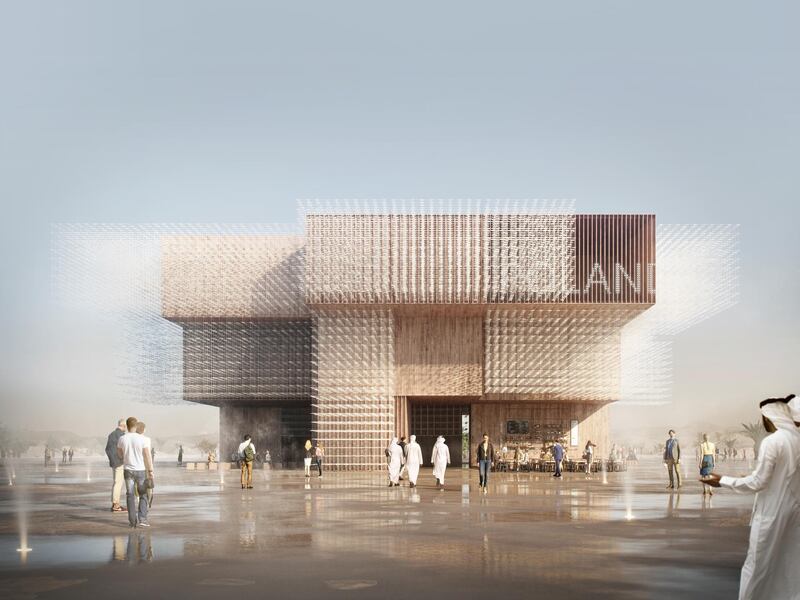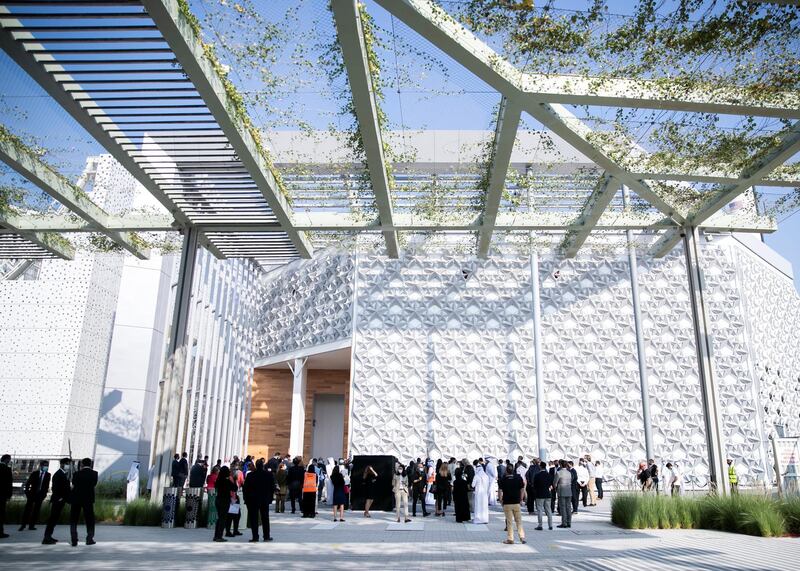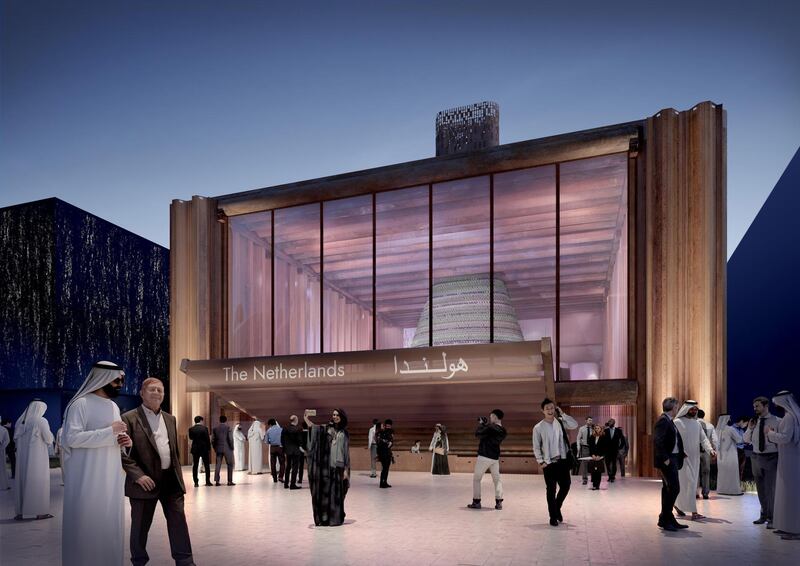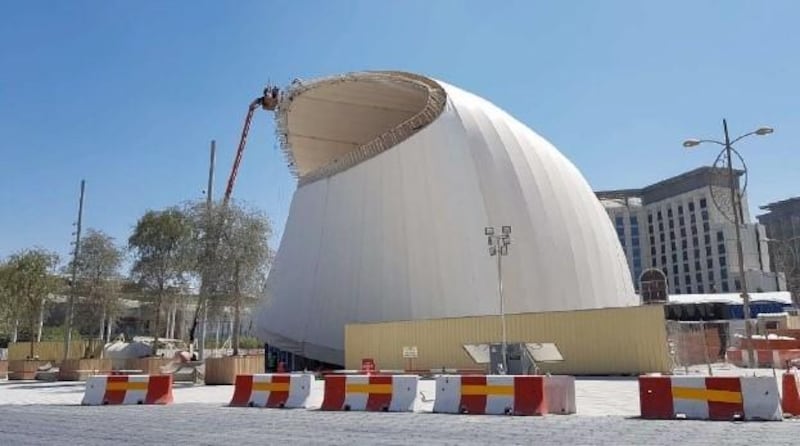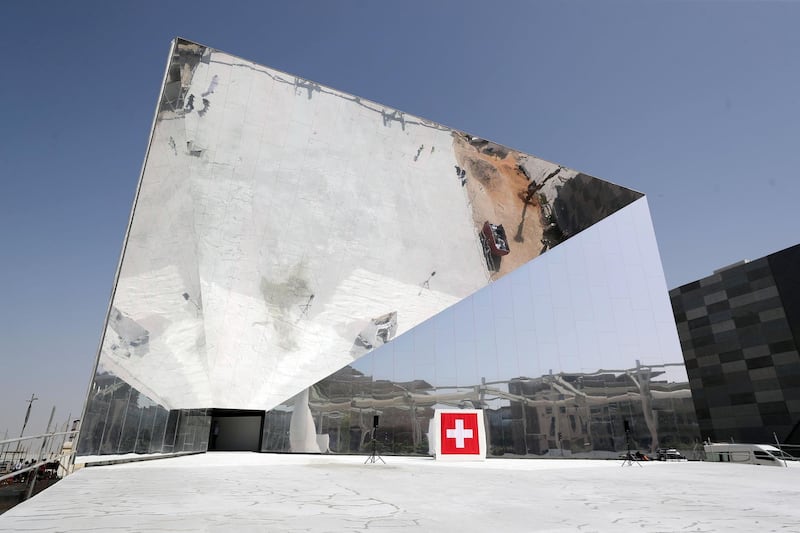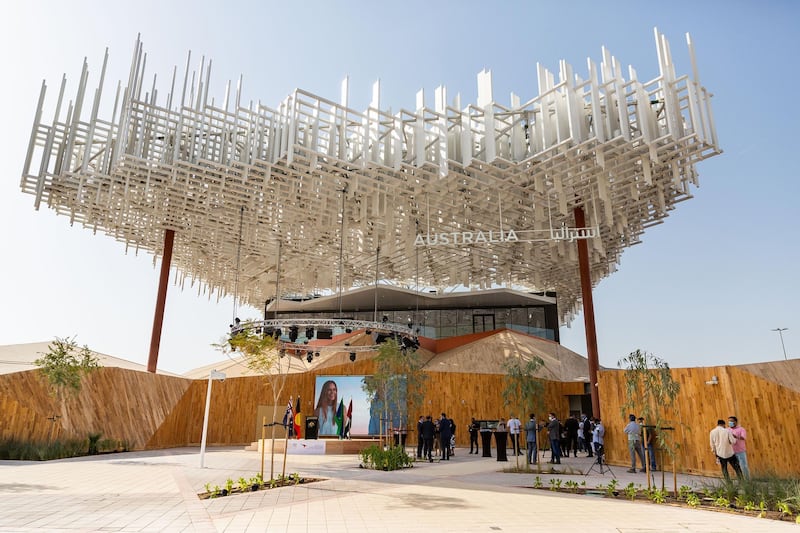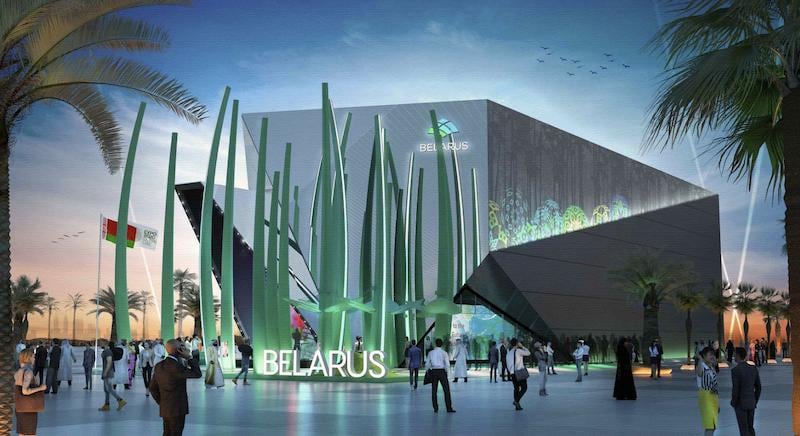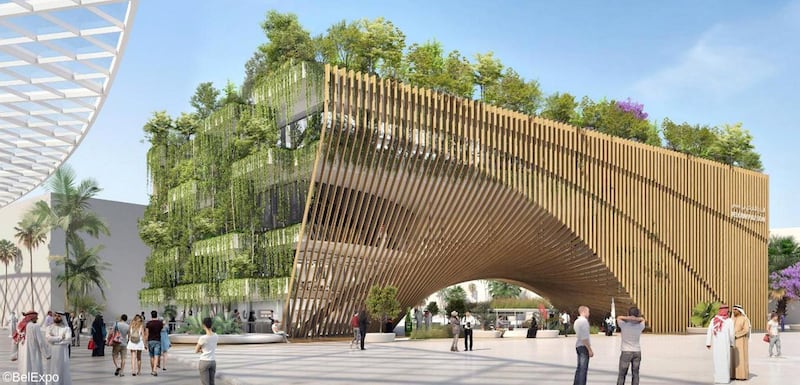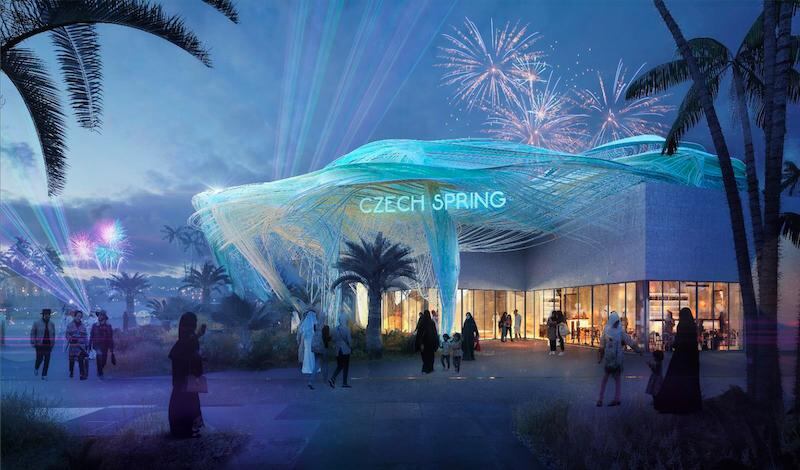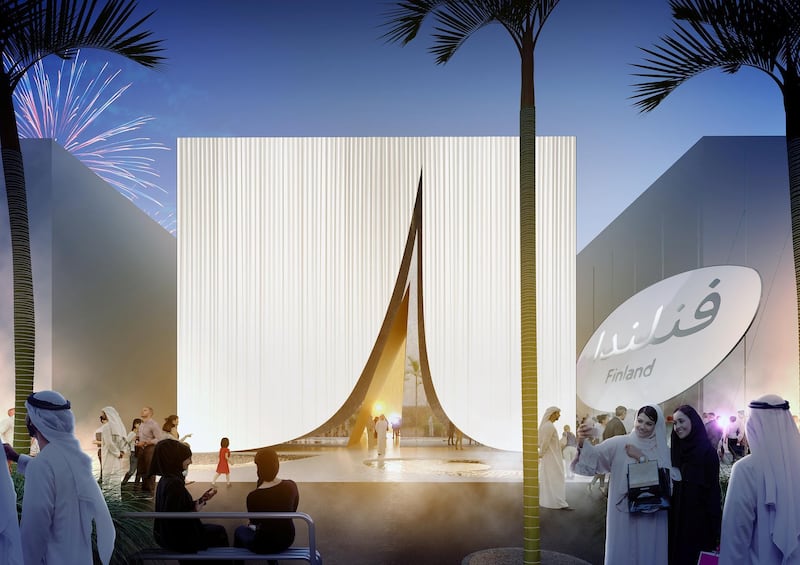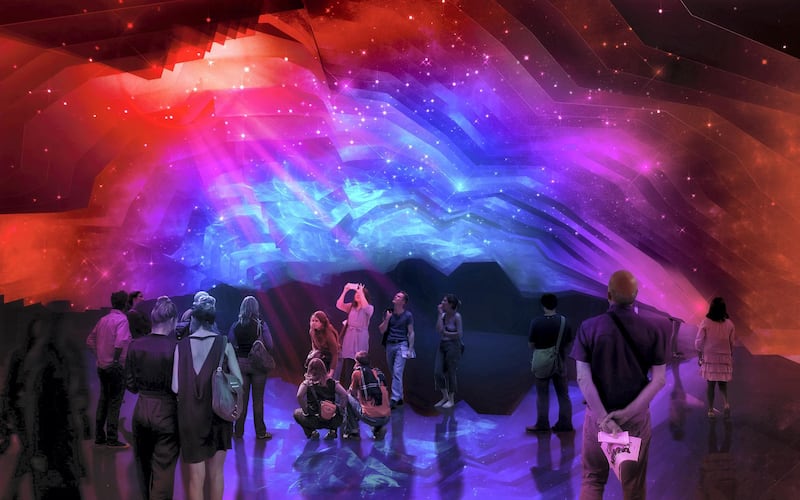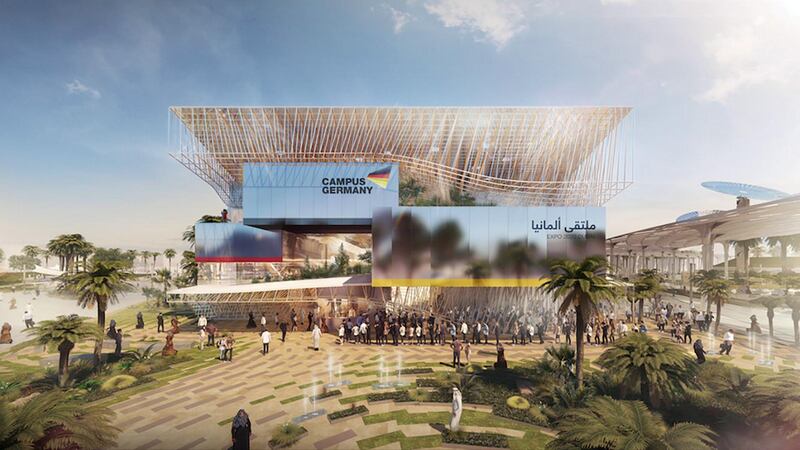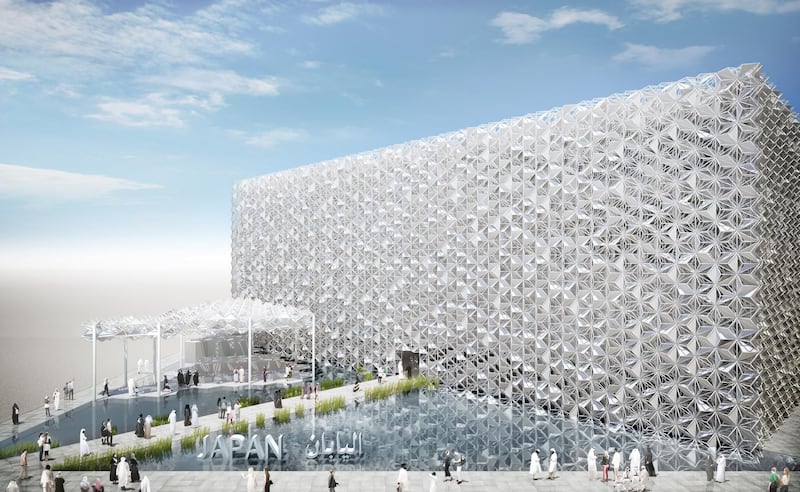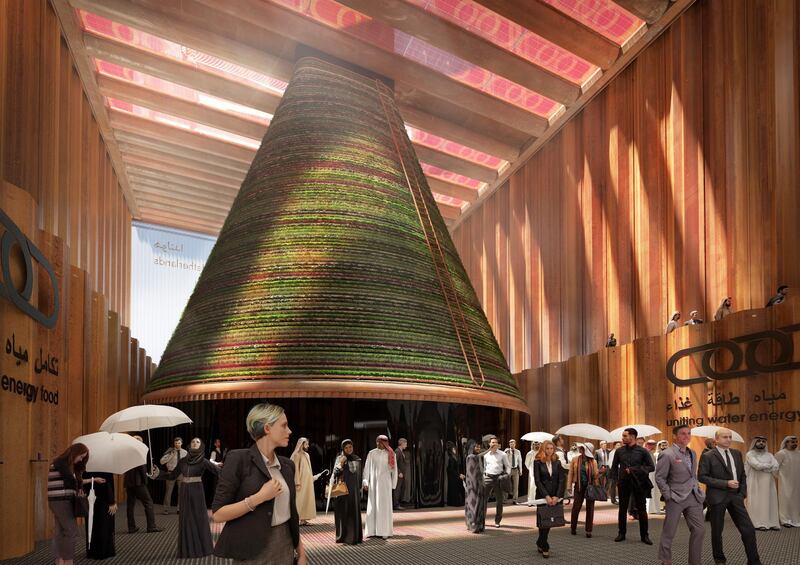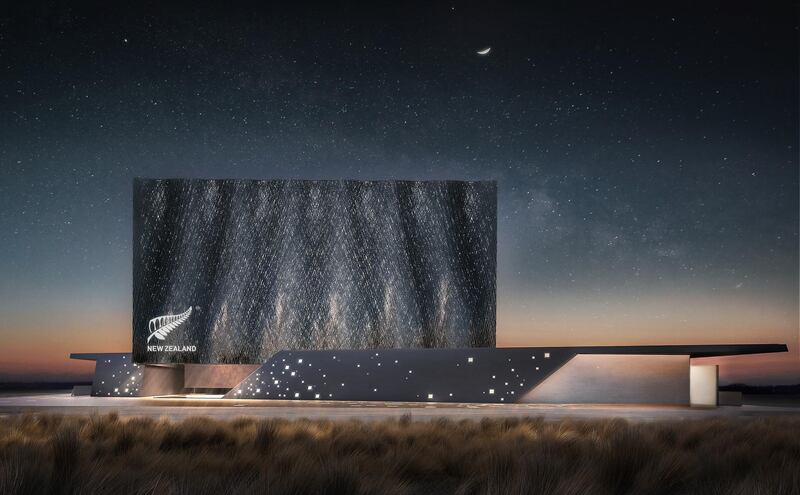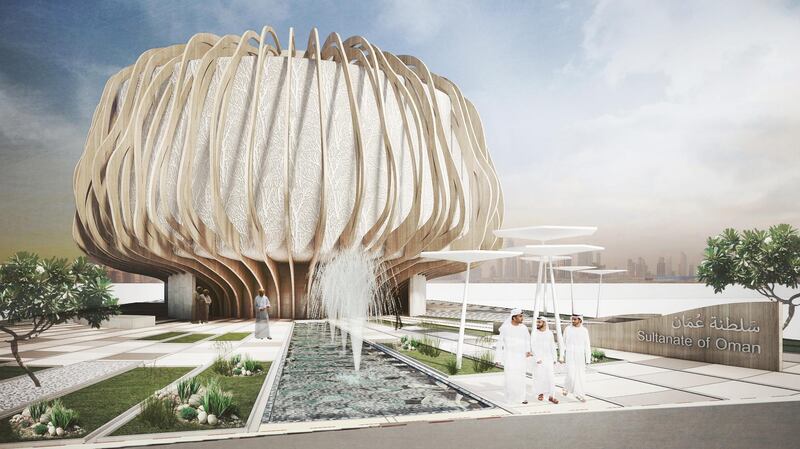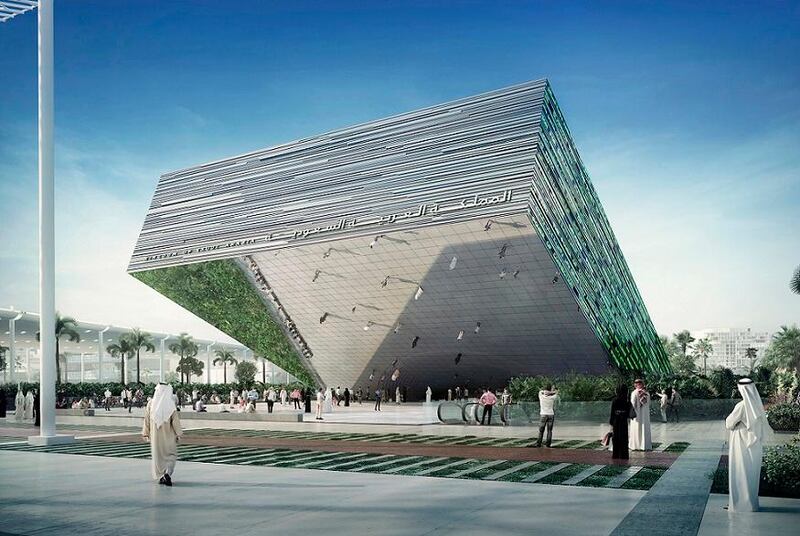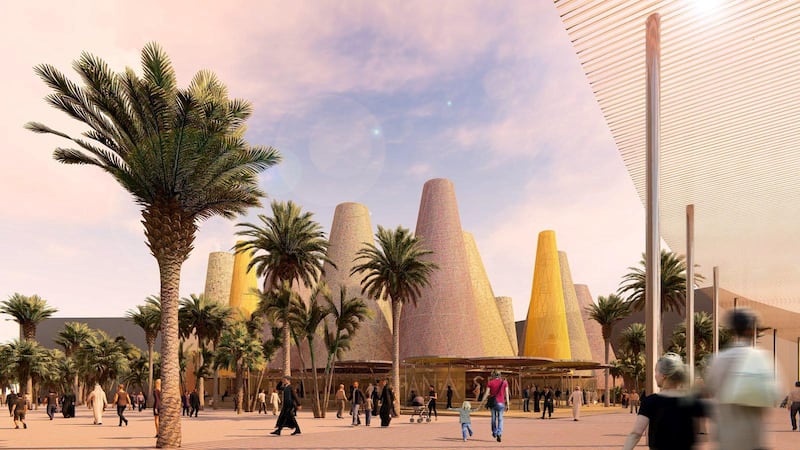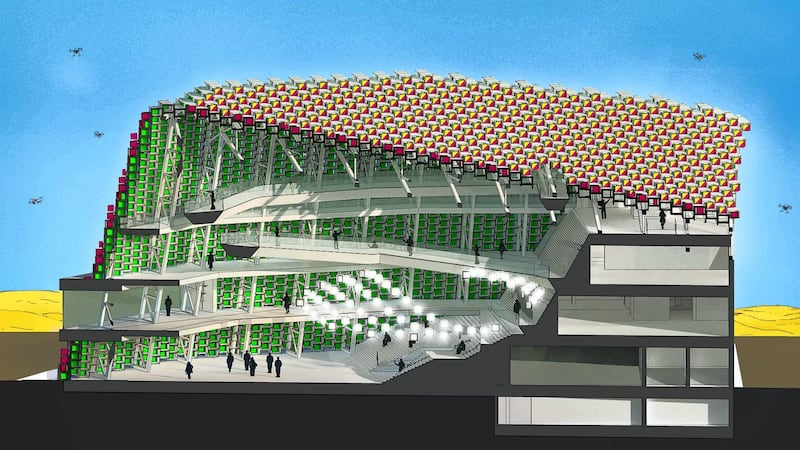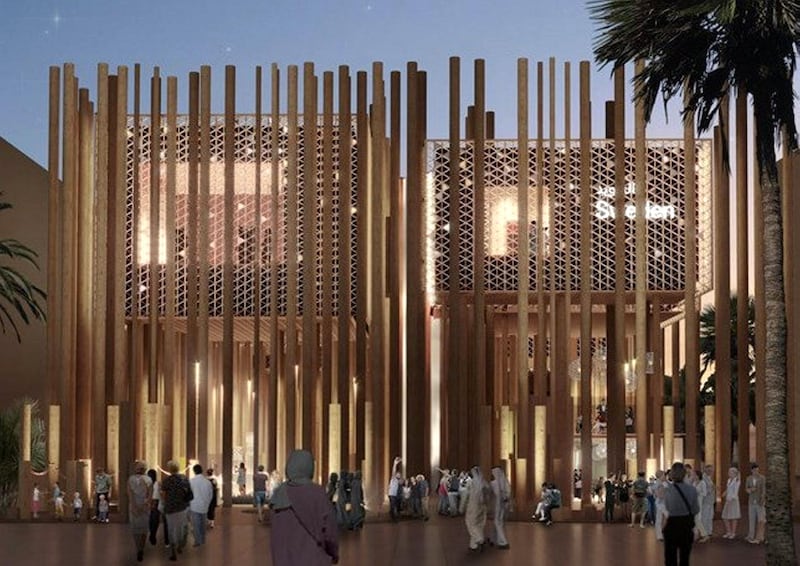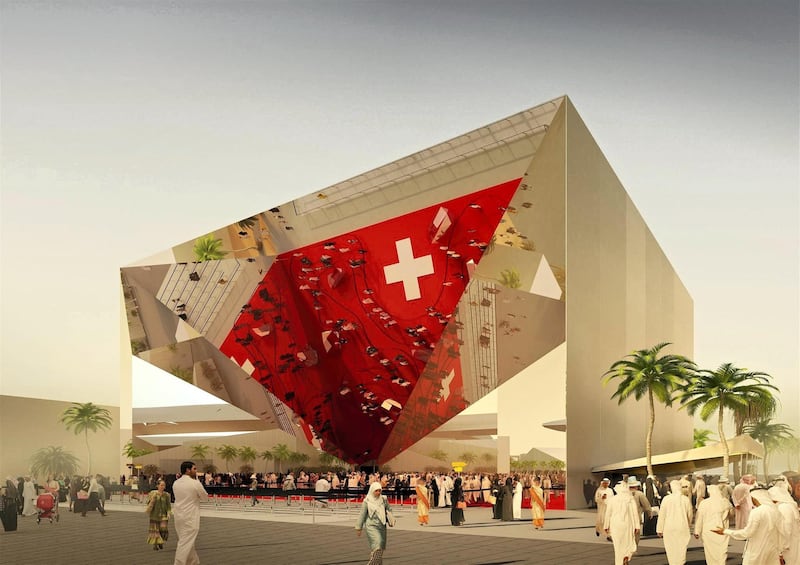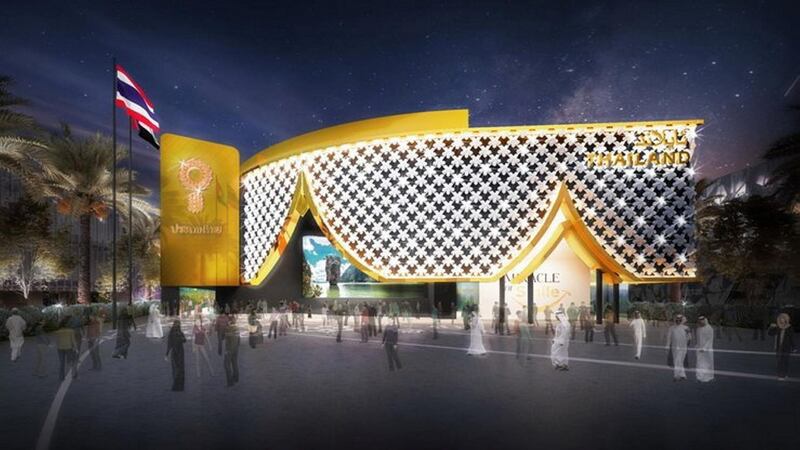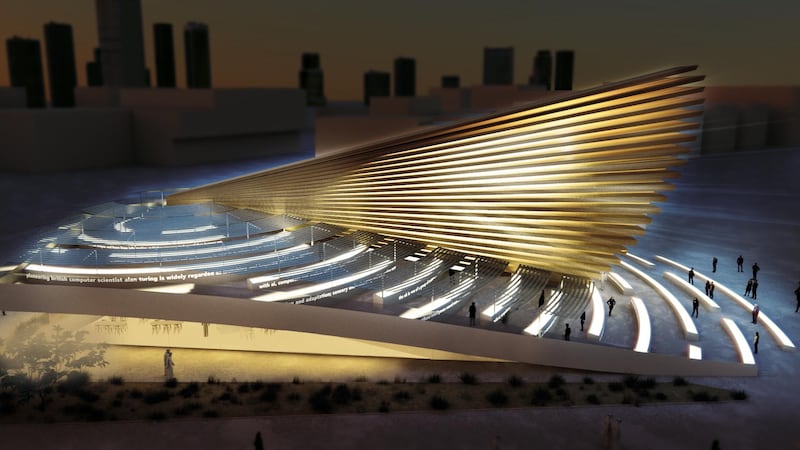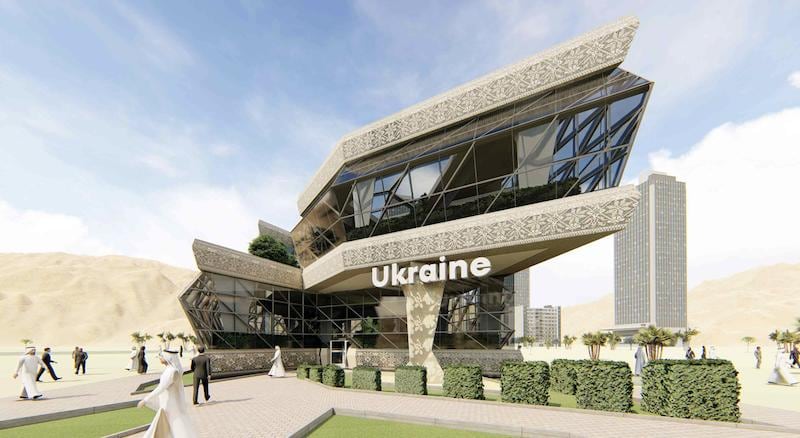Poland has chosen a design inspired by migrating birds for its Expo 2020 Dubai pavilion.
The winning entry by Warsaw architectural studio WXCA was chosen from 30 entries for its close attention to the theme of mobility – one of three themes for the world fair, along with opportunity and sustainability.
Sitting across a plot of 2,000 square metres, the structure will be made from wooden boxes that look like shipping containers. They will be surrounded by steel rods holding thousands of paper birds, which from a distance blur the lines of the building.
“The contest was pretty tough. This time we told the teams we don’t just want the building itself, we want the idea behind it,” said Tomasz Pisula, chief executive of the Polish Agency for Investment and Trade and head of the Expo team.
“The theme is the migration of birds because around half or three quarters of the birds that are found in the Arab world are born and nest in Poland and seasonally migrate.
“The design combines the idea of nature and technology, and we have a very strong aviation business down in the south of Poland, so anything that is related to birds is good.”
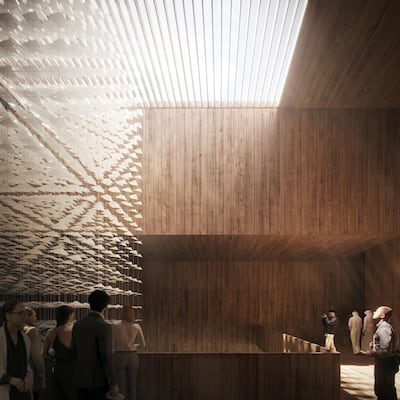
The Polish Expo team did not yet want to confirm the projected budget for the project, but press agency Informacyjna Agencja Radiowa reported that it will cost about Dh39 million.
This month, France announced that it is to invest close to Dh137.6m on its national pavilion for Expo 2020 in Dubai, which will focus on urban mobility, while Germany unveiled its 'vertical campus' concept based around sustainable design and artificial intelligence in September.
Poland hopes to build recognition for "made in Poland" as a brand and a concept that melds the traditional and the modern through its pavilion. Polish design is central to the programme, especially furniture and boats, but also medical tourism, fashion, cosmetics and food.
“At this point, we are the number one in the EU and number three in the world for producing furniture,” Mr Pisula said.
“What you don’t know is that the German furniture you buy is mostly made in Poland, and Ikea furniture. It’s about time we started working on our own label for this.”
They also seek to use the platform to promote foldable houses, a key export for the country. The plan for the pavilion is that it will be made in Poland and then transported to the UAE for assembly, like a folding pavilion.
In theory, after the Expo the structure can be transported somewhere else and used again, further meeting its mobility brief, although it is yet to be set where.
Another company the team are working with has come up with the idea of folding hospitals that can be transported to anywhere in the world and made operational within one month.
The next step in the process will be to finesse and finalise the design, before holding a public tender in January for the construction.
As well as a permanent exhibition space inside, there will be a temporary space that can be updated to keep the interest of repeat visits. Both will be filled in collaboration with the Adam Mickiewicz Institute, which aims to promote the Polish language and culture abroad.
_______________
Read more:
Design for UK pavilion at Expo 2020 Dubai revealed
_______________
A children’s zone will seek to capture the imagination of youngsters and inspire a passion for learning with exhibitors to include Skriware, a start-up that teaches programming and creative thinking through 3D printing and robots, which is already operating at a school in the UAE.
Manning the venue’s various facets will be a team of interns taken from students in international relations, Oriental and Aramaic studies who will be on duty to inform visitors about Poland.
Alongside the Expo, the country is also running a programme of events that will include a concert by the winners of the five-yearly International Chopin Competition in November 2020, and on Polish National Day in March 2020, a celebration of the 30th anniversary of bilateral relations between the two countries.
Among the top entries that did not quite make the grade were three buildings based around the sails of a ship to reflect boat-building as the sector with most economic benefit.
A pavilion covered in live plants in stripes designed to reflect the patterns seen on Polish farmland was deemed too complicated to execute, and another put together in slices like a beehive left too much unused space.
Expo 2020 Dubai is the first to be held in the Middle East. It will run for six months from October 20, 2020 to April 10, 2021, and is projected to attract 25 million visitors.
